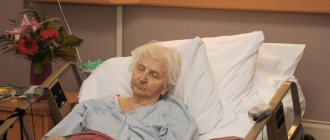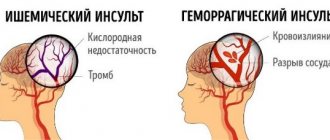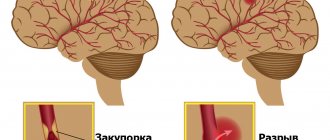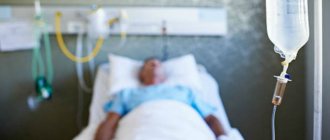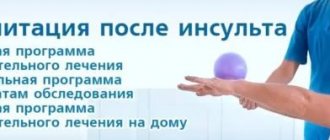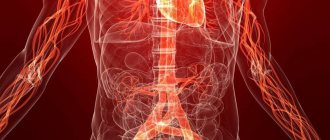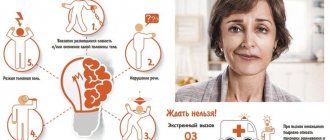Human long-term and short-term memory can be compared to a modern information repository, in which it is easy to find the necessary data.
- Why do memory impairments occur after a stroke?
- What are the manifestations of memory impairment?
- What is the danger of memory loss after a stroke?
- Is memory restored after a stroke?
- How long does it take to recover memory after a stroke?
- Care and recovery after a stroke at the Harmony House nursing home
Relatively speaking, all actions are reproduced by the brain on the basis of collected, processed and applied information, which must be ensured for safety in any situation.
Thanks to active thought processes, a person identifies himself, remembers how to walk and talk, eat and chew. Unfortunately, a disease such as stroke in older people can lead to the loss of certain areas of memory, which leaves a negative imprint on every moment of life after a stroke.
Why do memory impairments occur after a stroke?
The consequence of a blockage or rupture of a vessel is a stroke, and a person can suffer such a condition on his feet without noticing any changes. In some cases, the circulatory system suffers, which cannot deliver oxygen-enriched blood to a certain area of the brain and the cells of the cortex gradually die.
Cellular necrosis and lack of proper medical care remain the main causes of deterioration in health after a stroke. Against the background of such complications, partial or complete paralysis, immobilization of facial muscles and drooping of the corner of the mouth or eye, speech dysfunction and memory loss develop.
If the problem is noticed in a timely manner and qualified recovery after a stroke , it is possible to avoid the consequences. This situation is due to the fact that when a certain part of the brain is inactive, living cells can perform additional functions after a rehabilitation program.
It is impossible to predict the consequences of a stroke, but immediately after diagnosing such a condition, doctors can provide the necessary assistance. And by organizing proper care at home or placing an elderly person in a special rehabilitation boarding house, you can restore all lost body functions.
Stroke, methods of memory restoration (memory mechanisms)
For severe memory impairment and dementia, in accordance with international standards, medications are prescribed - AChE inhibitors (acetylcholinesterase) and nmda receptor blockers. Along with selected drug therapy in the rehabilitation of a patient who has suffered a stroke, cognitive training plays an important role, during which the patient performs tasks and exercises aimed at developing the memorization process. During such training under the guidance of a neuropsychologist, the patient re-learns to implement lost functions, relying on the intact parts of the memory mechanism and compensating for the damaged ones.
During the rehabilitation process, it is extremely important to involve the patient’s relatives as his support, since often, no matter how successful the recovery is, some of the lost functions can be realized only by relying on the external environment. Informing and training relatives on how to help a patient cope with the consequences of a stroke is one of the important factors in effective rehabilitation.
What are the manifestations of memory impairment?
Modern medicine proposes to consider human memory on the basis of two components that play an important role in its formation. These are short-term and long-term memory, responsible for the safety of ever-memorized information used in mental processes.
After a stroke, memory loss of various types can be diagnosed, and after such a diagnosis, the recovery process can begin with an individual selection of techniques:
- verbal memory impairment;
- visual memory disorders;
- loss of motor skills;
- disturbances of emotional-figurative memory.
The most complex and difficult to recover cases include vascular dementia, which cannot be cured. Such a diagnosis cannot be considered as a death sentence, although elderly people with dementia after a stroke completely lose adequate perception of the surrounding reality. With a properly selected course of rehabilitation and well-carried out recovery, it is possible to slow down the process of deterioration of a person’s condition and adapt it to reality.
Medical certificate
Cognitive (i.e. cognitive) functions:
- attention (understands a person’s ability to maintain the level of mental activity necessary for cognition);
- perception (the ability to construct, based on information that enters the brain from the senses, integral images and ideas);
- gnosis (implies the ability to understand formed images and associate them with categories of the mind);
- memory (the ability to remember, store and reproduce provided information);
- intelligence (understands the ability to perform actions with acquired information, i.e. perform analysis, comparison, evaluation, generalization, apply in solving problems);
- speech (implies the ability to communicate through a symbolic sign system, i.e. language);
- praxis (the ability to form and include motor skills in activities, build, memorize and automate a sequence of movements).
Cognitive impairment refers to a decrease in memory, mental performance and other cognitive functions. Comparison is made with the individual norm.
Appear as a result:
- local brain damage;
- decompensation of previous cerebral disease;
- development of acute encephalopathy.
Clinical picture depending on the location of the affected area (brain lobe):
- anterior frontal
– violation of planning and control;
- posterior parts of the left frontal
– Broca’s aphasia, apraxia (the patient can outline a plan of his actions required to perform a complex motor act, but is not able to perform it);
- left parietal
– associative aphasia, ideomotor apraxia (cannot outline a plan of sequential actions to perform a complex motor act), Gerstmann syndrome, body diagram defects, alexia, agraphia;
- left junction of parietal and occipital
– optical-spatial agnosia, acalculia, constructive apraxia (cannot form a whole object from its parts);
- right parietal
– anosognosia, ignoring ½ space;
- left temporal
– Wernkike aphasia and/or amnestic type;
- right
– amusia, dysprosody, arrhythmia;
- occipital left
– optical-object agnosia, isolated alexia;
- right occipital
– facial, visual color agnosia;
- hippocampus, thalamus, mediobasal frontal
– amnesia.
Symptoms:
- deterioration in concentration;
- defects in executive functions in the form of decreased intellectual flexibility (manifested by inertia, perseveration) and cognitive control (impulsivity appears);
- constructive dyspraxia;
- bradyphrenia;
- memory impairment in terms of incomplete reproduction.
The medical and social significance of the deviations lies in the decrease in the patient’s performance and the emergence of problems with everyday and social adaptation after a stroke. This negatively affects the quality of life of both the elderly and their family members. Due to a decrease in the effectiveness of neurorehabilitation, a poor prognosis regarding the completeness of functional restoration is given. The effectiveness of therapy and prevention of the main and concomitant diseases also decreases. As a result, life expectancy decreases.
What is the danger of memory loss after a stroke?
The extent of the destructive impact of a stroke on the memory of an elderly person is difficult to assess without an accurate diagnosis. It depends on the intensity and area of hemorrhage or the number of dead cells in a certain hemisphere of the brain, so rehabilitation procedures should be started immediately.
The problem of memory loss manifests itself in the difficulties faced by older people who cannot identify themselves. They do not remember their childhood and adolescence, they lose their walking skills and coordination of movements, they do not understand how to eat or carry out basic hygiene.
Another dangerous point is psychological discomfort, depression and anxiety in older people. After memory loss, an elderly person sees unknown people and unfamiliar objects around him; everything seems alien and frightening to him, which can cause psycho-emotional breakdowns.
Exercises for the torso
To restore good coordination of movements, it is necessary to use special physical exercises after a stroke, which should be performed every day. A set of the most effective exercises for the torso:
- Extend and connect your arms together, then perform forward inclined movements with your body. In the first few days, it is recommended to perform this exercise while sitting, after which - standing. They must be repeated 15 to 20 times.
- Pull your knees towards your chest while lying on the floor. Then lower one leg to the floor, holding the other with your hands. The exercise significantly works the abdominal muscle tissue.
- From a sitting position, place your hands on your belt, and then perform inclined movements of the body in different directions. When you feel better, it is recommended to perform the exercise while standing.
To normalize the muscle fibers in the neck, the patient needs to make short movements of the head to the right and left. To restore the fingers, they should be bent and unbent 15-20 times.
Is memory restored after a stroke?
Destroyed neural connections can be restored and this will provide the opportunity to partially or completely restore a person’s memory.
But for this it is necessary to create optimal conditions and develop a set of techniques, regularly conduct classes and monitor the current state of health of an elderly person:
- systematic memory training and activation of thought processes;
- drug therapy using memory improving drugs;
- using intellectual games and exercises to strengthen memory.
Classes and exercises should not overload the brain; in a person’s life it is important to find time for rest and entertainment. A specialized private boarding house for the elderly in the Moscow region offers unique and individually adaptable rehabilitation program complexes for people who have suffered a stroke.
How long does it take to recover memory after a stroke?
Rehabilitation procedures after a stroke carried out by specialists at our private boarding houses include an integrated approach. This means that in addition to memory restoration, psychologists work with patients to help stabilize their psycho-emotional state and return to normal life.
The process of memory restoration and its duration depend solely on the diagnosis and the degree of destruction of the neural network. It is very important that the patient immediately after a stroke begins to undergo a rehabilitation course and follows all the doctor’s instructions so that the changes become reversible.
Having lost memory and part of cognitive abilities, a person feels disoriented and often becomes depressed. For older people, it is important to organize optimal conditions for therapy and create comfortable psychological conditions under which rehabilitation will be as effective as possible.
Memory losses
Encephalitis
Diabetes
15667 August 21
IMPORTANT!
The information in this section cannot be used for self-diagnosis and self-treatment.
In case of pain or other exacerbation of the disease, diagnostic tests should be prescribed only by the attending physician. To make a diagnosis and properly prescribe treatment, you should contact your doctor. “Memory lapses” mean complete or partial loss of memories.
However, such an interpretation may imply memory loss, or may indicate an inability to remember this or that fact at a given moment.
Varieties
Memory is ensured by the functional activity of all parts of the brain and includes various processes - memorization, storage (or, conversely, forgetting), recognition and reproduction. Disruption of any of these processes will lead to memory defects.
It is the fight against forgetting (an important process that protects the brain from excess information) that ensures the retention of important data.
Two more processes – recognition and reproduction – make it possible to “bring to the surface” the required information.
Thus, memory loss, or lapses, refers to the inability to recognize or reproduce data stored in the brain. Memory lapses (or amnesia) may occur over time. Retrograde
amnesia is characterized by the inability to remember events preceding an injury or illness;
anterograde amnesia
is accompanied by loss of memory for events that occurred after the illness.
There are also retroanterograde
amnesia (a combination of the first two) and
fixation
, characterized by the inability to remember current events.
If memory for events at the time of injury or illness is lost, they speak of congrade
amnesia.
Possible reasons
Memory lapses do not always indicate any disease.
Rapidly changing information is absorbed only by short-term memory and is stored for several days. An example of such memorization is preparation for an exam: a large amount of data is absorbed in a short time and just as quickly disappears from memory.
Storing information for long periods of time requires processing and encoding.
Only after this the necessary data is recorded in the brain structures.
In the presence of psychological factors
(stress, nervous overstrain) or constant fatigue and lack of sleep, concentration is disrupted, which impairs the memorization process.
Memory lapses often occur as a defensive reaction to emotional stress.
A typical example of this condition is sudden memory loss during exams or when speaking in front of an audience. These failures refer to transient memory impairments, but in some cases they may indicate a circulatory disorder in the area of the posterior cerebral arteries, which most often occurs with alcoholism and drug addiction
.
Damage to even small areas of the brain due to traumatic brain injury
also leads to memory loss or blackouts.
In this case, retrograde amnesia occurs, which lasts several hours before the injury. Longer fixation amnesia is also possible - several days immediately after the injury, which is noted when the patient is clearly conscious. A few days after the injury, memory is restored in most cases. Surgeries on the temporal lobes of the brain
lead to transient memory impairment .
Patients with epilepsy
forget not only the seizure itself, but also the short period of confusion after it.
In some cases, it is precisely such memory lapses that give reason to suspect epilepsy during non-convulsive seizures.
Memory disorders may be caused by metabolic disorders in the central nervous system.
Deterioration of brain function occurs with a lack of oxygen due to cardiopulmonary failure
, toxic damage due to
liver and kidney failure
.
Oxygen starvation of the brain after a sharp rise or fall in blood pressure is often accompanied by a sharp deterioration in memory.
The same effect has a decrease in glucose levels during fasting and
diabetes
. In addition, with diabetes mellitus, angiopathy develops - damage to blood vessels, which aggravates nutritional deficiency.
A sharp deterioration in memory with failures occurs with hypothyroidism
, which is caused by a lack of iodine in the body.
Deficiency of vitamin B12 and folic acid
is also accompanied by memory impairment.
Vitamin B12 is necessary for the regeneration of myelin, a substance that covers nerve fibers and ensures their functioning.
Destruction of the myelin layer is accompanied by slowing of nerve impulses and memory impairment. Memory may be affected in patients taking certain medications
. These include anticholinergics (atropine, scopolamine, platiphylline, metallisir), antidepressants and antipsychotics. Steroid hormones have a destructive effect on brain structures and, accordingly, memory. Recent studies show that people who take steroid hormones for a long time (for example, bodybuilders) have serious problems with visuospatial memory. Information about the negative effect of steroid hormones on memory should also be taken into account in patients with bronchial asthma and arthritis.
Tumors
, infectious diseases that lead to damage to the central nervous system sometimes have an irreversible effect on memory.
Such diseases include encephalitis
and
meningitis
.
Inflammation of the membranes and tissue of the brain leads to the destruction of nerve structures and, as a result, to impairment of cognitive activity, speech and memory.
There are memory impairments associated with age.
Normally, the first signs of memory decline appear after 50 years of age, which is associated with a weakening of concentration and a decrease in the processes of encoding information. However, if memory loss progresses sharply, more serious illnesses may be suspected. First of all, memory loss can occur with senile, or senile, dementia. With dementia, diffuse damage occurs to the cerebral cortex (for example, in Alzheimer's disease
) or subcortical structures of the brain (
Parkinson's disease, Huntington's chorea, multiple sclerosis, encephalopathy
).
The earliest sign of Alzheimer's disease is loss of memory for recent events.
This symptom may later be accompanied by speech and cognitive impairments. As the disease progresses, loss of fixation, anterograde and retrograde memory develops. Memory for events that happened a long time ago is retained for the longest time. With Parkinson's disease and multiple sclerosis, a person spends a lot of time remembering past events or facts. At the same time, he gets tired quickly, it is difficult for him to remember new information or master motor skills.
With repeated repetition of new material and the establishment of semantic analogies, the memorization process becomes easier, but requires constant reinforcement.
Diagnostics and examination To diagnose the causes of memory impairment, an assessment of the patient’s mental state, a thorough analysis of the data revealed during the survey, and the dynamics of the development of the disease are necessary. Significant information can be obtained using various laboratory tests and instrumental examinations, as well as assessing the patient’s neurological status. Brain CT and MRI data are used as an objective criterion.
Care and recovery after a stroke at the Harmony House nursing home
The rehabilitation programs used by our specialists include all the necessary measures to restore memory and cognitive processes.
The Harmony House network of private boarding houses for the elderly specializes in providing quality medical services for their residents:
- compliance with the conditions of therapy and rehabilitation;
- psychological comfort and calm environment;
- constant supervision by experienced caregivers;
- assistance in hygiene procedures, feeding;
- Qualified doctors work with patients.
During rehabilitation and socialization, qualified psychologists actively work with elderly people living in boarding houses. We maintain a friendly and relaxed environment, provide leisure activities and experienced staff to provide assistance to people in dire need.
A stroke in old age can be suffered on the legs, but lack of treatment and rehabilitation can lead to the development of various consequences. Our network of boarding houses provides high-quality and targeted care for the elderly in Moscow and provides individual rehabilitation services for residents.
